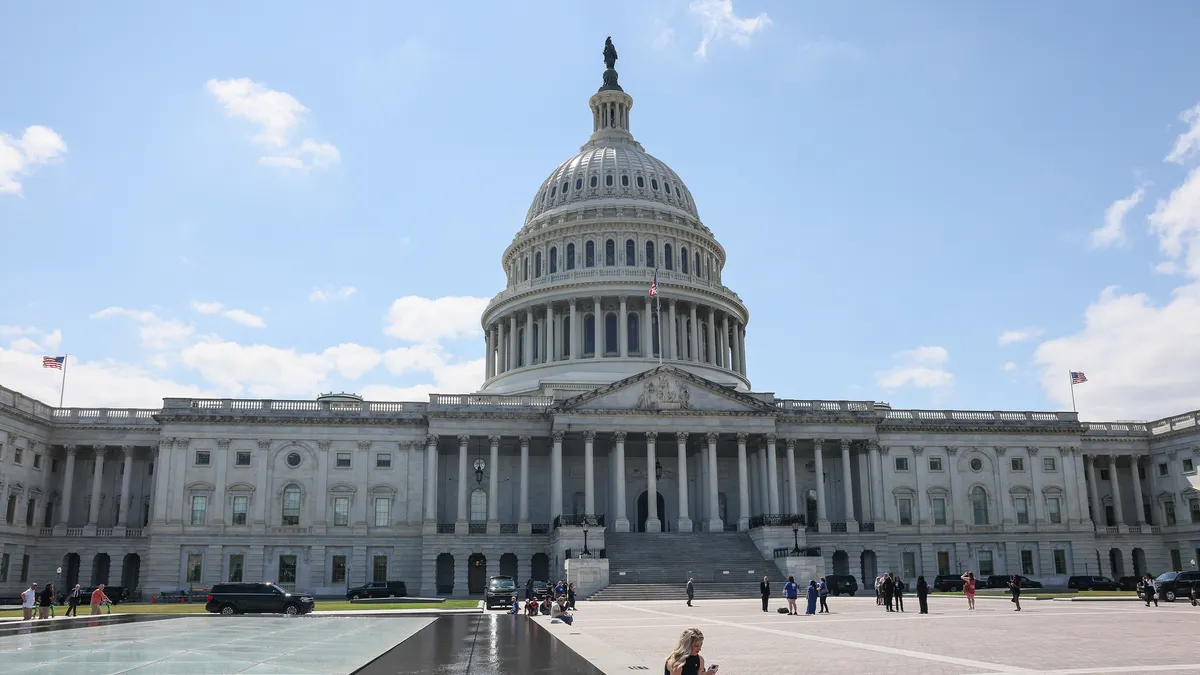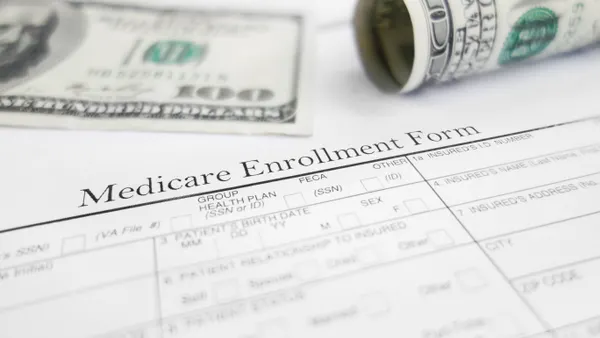Dive Brief:
- A bipartisan bill introduced in Congress this week aims to more accurately determine Medicare reimbursement for laboratories by tying payment rates for diagnostic tests to a not-for-profit commercial claims database.
- The legislation would reform the 2014 Protecting Access to Medicare Act, also known as PAMA, which the lab industry for years has argued created a process that sets reimbursement rates artificially low.
- Called the Reforming and Enhancing Sustainable Updates to Laboratory Testing Services (RESULTS) Act, the new bill would “dramatically improve” the data used to set rates for lab tests, the American Clinical Laboratory Association said Thursday.
Dive Insight:
PAMA was supposed to establish market-based rates for lab services paid under the Clinical Laboratory Fee Schedule by collecting private payer data from independent, hospital outreach and physician office labs.
In practice, implementation by the Centers for Medicare and Medicaid Services was flawed, according to ACLA, resulting in reimbursement rates based on data collected from less than 1% of labs, which did not reflect private payer rates as intended. PAMA’s enactment led to nearly $4 billion in payment cuts in three years, the group said.
Congress has delayed the phase-in of new payment rates multiple times to forestall more cuts. Prior attempts to pass legislation called the Saving Access to Laboratory Services Act, or SALSA, that sought to reform the Medicare reimbursement process for lab tests were unsuccessful.
Without further congressional action, CLFS rates for about 820 lab tests will be cut by up to 15% starting Jan. 1, 2026, threatening to reduce patient access to routine diagnostics, ACLA said.
The RESULTS Act would direct the CMS to work with a third-party administrator with a comprehensive private payer claims database. For diagnostics that are not widely available, such as proprietary tests and those for rare diseases, clinical labs would report commercial data directly to the CMS to set rates for those services. The bill would also cap Medicare reductions at 5% instead of 15%.
The bill was introduced in the House by Reps. Richard Hudson, R-N.C., Gus Bilirakis, R-Fla., Brian Fitzpatrick, R-Pa., Raja Krishnamoorthi, D-Ill., and Scott Peters, D-Calif., and in the Senate by Thom Tillis, R-N.C., and the Rev. Raphael Warnock, D-Ga.












